
When I last discussed free books to learn Linux, some readers asked for my advice about video courses to learn Linux online.
Usually, I advise checking some good and affordable Linux courses on Udemy. There are some free courses and some paid but good courses for beginners as well as advanced users.
But if you are not in the mood to spend a few bucks, I have compiled this list of free Linux training courses.
If you are serious about building your career in Linux, you should try a certification like Linux Foundation Certified Sysadmin. Linux Foundation is the official organization behind the Linux project, and they have training and certification courses on cutting-edge Linux technologies. They also run sale several times a year. You can check this continually updated page to get Linux Foundation discount offers.
But before you try your hands on certification courses, you should be familiar with the basics.
Hence, these video courses will help you do that. Some of these are just basics to introduce you to Linux while some can help you build a career with Linux. I’ve filtered them as per their categories.
These courses are available worldwide without any charges. All you need is a decent internet connection and the determination to learn Linux.
Free Linux training courses
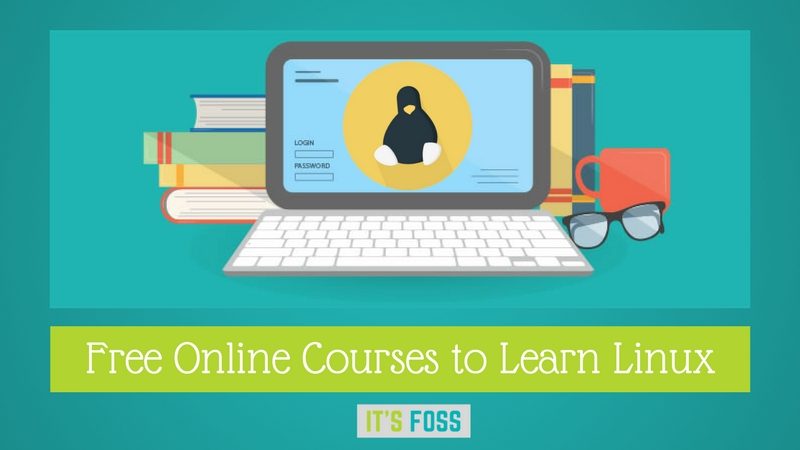
Some of these are Linux training for beginners while some focus on slightly advanced and job-oriented topics such as DevOps, open stack and cloud infrastructure. You can choose the one which is appropriate as per your needs and skills.
Basics of Linux
In this category, we shall stick to some of the courses that introduce you to a certain topic or area without going much into the details.
1. Quick Introduction to Linux Command Line

If you're new to Linux commands, the terminal, and the bash shell, this micro-course is perfect for you. In just an hour or two, you'll become familiar with the most common Linux commands, learn how to seek help from man pages, and master navigation through the bash shell.
2. Introduction to Linux
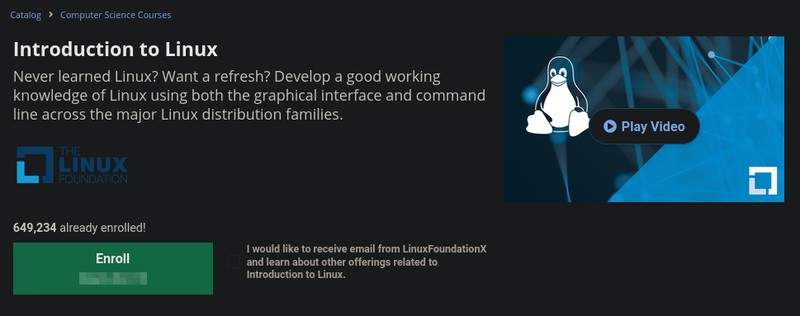
This free online course is designed by The Linux Foundation and promoted by Linus Torvalds himself. Consider it as the official Linux course. It is available on edX, an online educational platform by MIT.
However, this course is for the people who have no idea what is Linux and how to use it. You’ll learn the following things after the course:
- Working knowledge of Linux
- Navigate through major Linux distributions
- System configurations and graphical interface of Linux
- Basic Linux command line operation
- Most common applications of Linux
3. An Intro to the Basics of Linux
This free Linux course is created by the networking giant Cisco. Like the previous offering, this course too focuses on absolute beginners. You don’t need any prior knowledge to Linux for this course.
You’ll learn the following thing in this online video course:
- Basics of the Linux Command Line Interface (LCI)
- Hands-on using a Linux virtual machine (provided free of charge)
The course runs for 8 hours. You can get the details on the page below:
4. Linux Essentials
If you think that the previous course from Cisco was too basic, you can try your hands on another Cisco course. Linux Essentials course requires you to have some fundamental knowledge of Linux command line and then it builds up the foundation on top of that.
You’ll learn the following in this course:
- Learn entry-level open source concepts
- Enhance your understanding of Linux command line
- Learn how Linux is used
- Hands on using a Linux virtual machines
This is rather detailed course and it runs for around 70 hours. It is self-paced so you can use the course at your own comfort. These Cisco courses also include lab activities so you get to do some practice instead of just reading/following the videos.
5. Fundamentals of Red Hat Enterprise Linux

This is a free course offered by Red Hat itself. Red Hat is one of the most prominent enterprise-oriented Linux. Securing a certification with Red Hat could actually land you a job.
This course, however, only teaches you the fundamentals of Linux using Red Hat Enterprise Linux. You get to learn:
- Access the command line.
- Manage files from the command line.
- Create, view, and edit text files.
- Manage local Linux users and groups.
- Monitor and manage Linux processes.
- Install and update software.
You can access the online Linux course on the link below:
If you already know these things and want to prepare for the certification, I recommend this Red Hat sysadmin certification course.
Shell Scripting Essentials
Once you get comfortable with Linux and start using the Terminal, you can try Shell Scripting as well. Basically, with shell scripting you work to execute multiple commands to get an output.
This is especially useful when you want to automate a great deal of tasks as per your requirements.
You can follow our list of free resources to learn Shell Scripting but to give you a head start, I’d recommend some here:
6. Bash Beginner Series
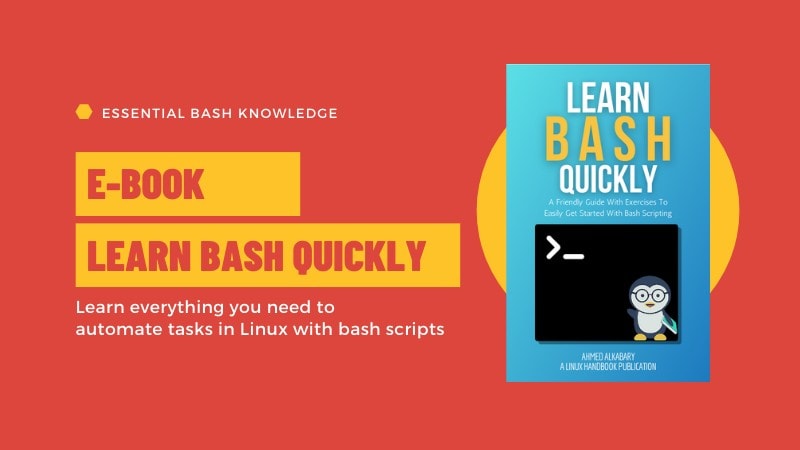
Bash Beginner series is one of our recent additions to Linux Handbook. You can easily follow the articles in the series to get started or purchase the eBook edition of the series for quick access of the resource offline.
7. Learn Bash Scripting (LinkedIn Learning)
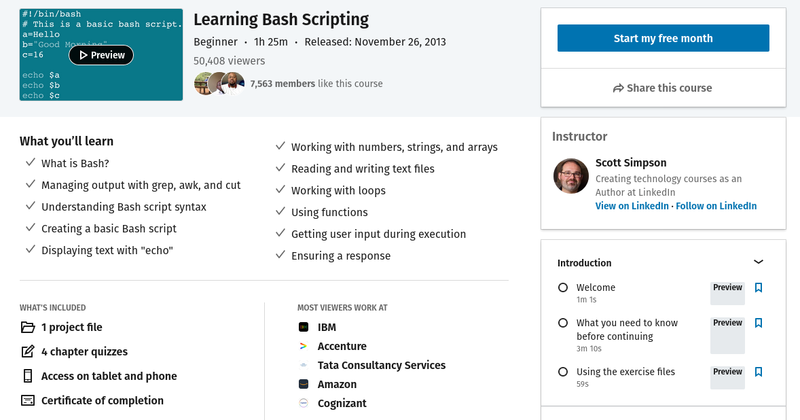
If you haven’t yet signed for LinkedIn premium to try LinkedIn Learning, this is for you. With the help of 1-month free trial of LinkedIn premium, you can get free access to LinkedIn Learning courses, which are quite impressive and brief.
You can try Learn Bash Scripting course to get started with shell scripting.
Get Introduced to DevOps
If you are familiar with Linux commands and systems, you may want to learn DevOps technologies. This is the current technology trend and you very important if you want to make a career in the IT world as a Linux sysadmin.
8. Introduction to DevOps
This is another free course offered by Linux Foundation. This course is focused on DevOps activities. DevOps is somewhat similar to SysAdmin role, if not exactly the same. You’ll need to have some basic knowledge of Linux command line for this course.
You’ll learn the following stuff from this course:
- Why we need DevOps.
- Understanding the foundations, principles, and practices of DevOps
- Understand, analyze, and map value streams.
- Explaining and implementing the deployment pipeline.
- Illustration of the concept of Continuous Delivery.
- Creating a problem solving culture.
- Understand the concepts of blameless postmortems.
- Monitoring meaningful infrastructure and business metrics.
- Change management coverage
- Understand how resilience engineering and safety culture are critical to DevOps success.
The course is over 40 hours long and makes you acquainted with the DevOps processes. If you want to build a career in DevOps, perhaps you should start here. It doesn’t cost a dime after all.
9. Intro to DevOps
Yet another free training resource to get started with DevOps. This is an offering on Udacity with a significant amount of content available for free. You just need to have an Udacity account and that’s just it!
With this introductory course, you get to learn the following:
- What is DevOps
- Why DevOps is needed
- Different perspectives to it
- Tools involved in DevOps
After getting familiar with the DevOps concept using some of these introduction courses, you can look for specific resources like AWS DevOps resources and explore your way through.
Resources for Cloud Technologies (Kubernetes/Docker etc)
10. Introduction to Cloud Infrastructure Technologies
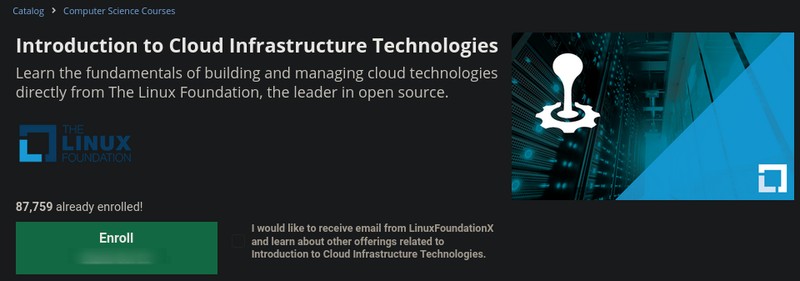
No one knows better than The Linux Foundation about what kind of Linux skills are in demand. Cloud computing is everywhere and this course helps you with the fundamentals of building and managing cloud technologies.
You’ll learn the following in this course:
- Basics of cloud computing
- Different cloud technologies characteristics
- Knowledge on how to choose the right technology stack for your needs
The course runs for about 30 hours. You can get more information on its website:
11. Introduction to OpenStack
Cloud computing is not the buzzword in the IT industry anymore. It has become the necessity.
OpenStack enables you to build and manage cloud computing platforms for public and private clouds. OpenStack is considered the future of cloud computing and considering that the job market has doubled for OpenStack, I would say you must learn it if you are looking for a career in Linux.
You need to have some basic knowledge of Linux before you could attend this course. I would also suggest completing the previous course on Introduction to Cloud Infrastructure Technologies. It will teach you the following:
- Cloud computing compared to virtualization
- Deployment of virtual servers
- Installation of OpenStack with automated tools
- Command line management tools
- Scaling out an OpenStack Cloud
The course runs over 30 hours. You can get enrolled on the page below:
12. Free Hadoop Tutorial
Big Data is still a big deal in the tech industry and having Big Data can get you paid. You can get started with the free Hadoop Tutorial starter kit from Udemy.
You will need to have some prior knowledge on basic Linux commands and Java to make the most out of it.
If you want to explore, this course will cover the following key topics:
- Understand the Big Data problem in terms of storage and computation
- Understand how Hadoop approach Big Data problem and provide a solution to the problem
- Understand the architecture of HDFS
- Understand the MapReduce programming model
You can take a closer look at the course to find out what it offers and if you find it useful.
13. Introduction to Kubernetes
Kuberenetes is the latest buzzword in the IT industry. It takes container deployments to the next level. DevOps teams worldwide are starting to use it. Perhaps you should have a go at the basics of the Kubernetes.
This course from The Linux Foundation will teach you:
- The history, architecture, and components of Kubernetes
- How to set up and access a Kubernetes cluster using Minikube
- Multiple ways to run applications on the deployed Kubernetes environment and access the deployed applications
- How you can participate in Kubernetes communities
14. Linux Survival
Unlike the other entries in this list of best Linux training courses, Linux Survival is not a video course. It’s an online website that teaches you Linux command line in an interactive and relatively fun way.
You don’t have a login here so there is nothing to keep track of your progress. You’ll have to remember on your own where you last left at. Nevertheless, it’s free and worth a try.
Anything else?
Well, that was my list of free Linux online courses that would help you to learn Linux, become a Linux SysAdmin and even help you get jobs in Linux domain.
In addition to the list above, you can also explore for more free resources on Udemy or any other similar platform to learn Linux online.
Quick tip: If you feel like practicing at work and don’t have a Linux system at hands, you can still run Bash commands using the online Linux terminals. Handy for quick practicing.
Do you know of some other reputable institute offering free online courses to build a career in Linux or with Linux basics? Have you already taken any of the courses? How was your experience? Share it with us in the comments below.


